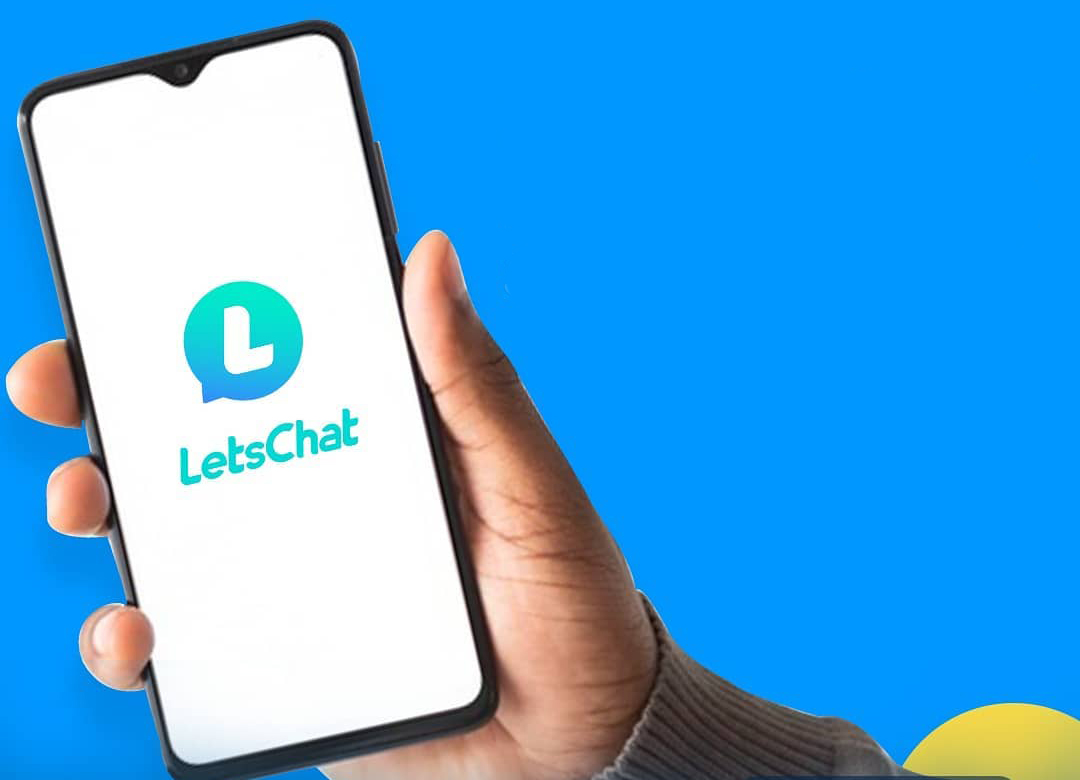TikTok owner shuts down WhatsApp competitor in Africa
LetsChat has ceased operations after failing to attract a sufficient user base
 Photo credit: LetsChat
Photo credit: LetsChat
Chinese technology giant ByteDance, the company behind TikTok, has shuttered its African messaging platform LetsChat, once seen as a potential rival to WhatsApp and Telegram. Despite TikTok's success on the continent, with approximately 65m monthly users, ByteDance has struggled to establish a presence in the messaging app market.
Introduced in 2021, LetsChat was developed as a data-saving messaging platform for young Africans. The platform provided text messaging and allowed users to make voice and video calls without using their own data, in addition to featuring in-app games.
The Beijing-based company spent three years trying to make LetsChat a success by hiring local teams and investing in marketing efforts, including enlisting prominent African social media influencers to promote the platform.
Before its closure, LetsChat had garnered more than 7 million downloads, although its user base had been steadily declining in recent months. Just over 80% of its users were from Nigeria, where it focused a lot of its marketing efforts. The app also drew meaningful traffic from Mali, Angola, and Côte d’Ivoire.
Some dissatisfied users reported technical glitches, including call disruptions and receiving calls from unrecognised numbers. Others noted that the app suggested connecting with complete strangers. However, technical issues probably were not the primary reason for the platform's failure to launch. More likely, LetsChat struggled to overcome the entrenched positions of incumbents like WhatsApp, Facebook Messenger, and Telegram. WhatsApp boasts an estimated 146m users in Africa, while Messenger has around 132m.
It has also been suggested that LetsChat missed an opportunity by not ensuring its app was pre-installed on mobile devices, particularly those made by fellow Chinese company Transsion which holds nearly 50% of the African smartphone market through brands like Infinix, Itel, and Tecno.
The cost of data remains a crucial factor for mobile users in Africa. Despite rapid economic growth over the past two decades, in 2019, some 41% of the population in sub-Saharan Africa still lived on less than US$1.90 per person per day. The region faces some of the highest data costs worldwide; for instance, the average price for 1 GB of data in Kenya is US$2.25, in stark contrast to just US$0.12 in Italy. Several major tech companies have launched low-data versions of their platforms, such as Facebook Lite and YouTube Go, specifically for markets like Africa. The Oslo-based software company Opera has also seen success in Africa with its Opera Mini mobile internet browser, which enables users to consume up to 90% less data. Opera's browser has been downloaded over 100 million times on the continent. This widespread familiarity with low-data platforms across Africa may explain why LetsChat failed to differentiate itself and gain a stronger foothold in the market.
In 2022, Africa had 489m mobile subscribers, with 25% of the population using their handsets to access the internet, indicating significant growth potential. According to a 2022 Global Web Index survey, African users exceed the global average of 2 hours and 26 minutes daily on social media. Nigerians top the list as the continent's most avid users, spending an average of 3 hours and 42 minutes per day. Meanwhile, users in South Africa, Ghana, and Kenya also log more than three hours daily on social media platforms.
References
‘ByteDance, the Chinese company that owns TikTok, has launched 'LetsChat' for young people in Africa’, Business Insider Africa, 13 May 2022
‘Africa’s rapid economic growth hasn’t fully closed income gaps’, IMF, 21 September 2022
‘Opera driving digitalization across Africa’, Opera, 22 December 2022
‘TikTok’s sister app LetsChat wants to become the WhatsApp alternative for Africans, but users aren’t convinced yet’, TechCabal, 10 June 2023
‘The Mobile Economy Sub-Saharan Africa 2023’, GSMA, 17 October 2023
‘Egypt factory to produce accessories for Chinese smartphone giant’, NTU-SBF Centre for African Studies, 27 November 2023
‘Sub-Saharan Africa’, ISS African Futures, 13 December 2023
‘ByteDance shuts down its WhatsApp clone in Africa’, Rest of World, 27 March 2024
‘ByteDance shuts down free African messaging app that failed to challenge WhatsApp’, China-Global South Project, 29 March 2024















/enri-thumbnails/careeropportunities1f0caf1c-a12d-479c-be7c-3c04e085c617.tmb-mega-menu.jpg?Culture=en&sfvrsn=d7261e3b_1)

/cradle-thumbnails/research-capabilities1516d0ba63aa44f0b4ee77a8c05263b2.tmb-mega-menu.jpg?Culture=en&sfvrsn=1bc94f8_1)







